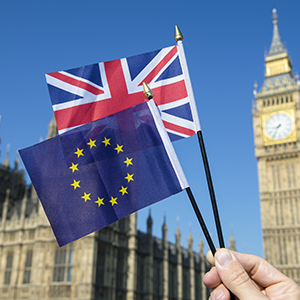A lot has happened since the June 24th referendum in the UK to leave the European Union. Surprisingly, there may be more uncertainty now than there was immediately following the vote three months ago.
We’ve since gotten a new Prime Minister, Theresa May, who has formed a government department to manage the negotiation process with the European Union - dubbed “The Three Brexiteers.” The principle architects for the Brexit negotiation are David Davis, the Secretary of State for Brexit; Liam Fox, the International Trade Secretary; and Boris Johnson, the Foreign Secretary.
So, now that we have some clarity on who will be in charge of negotiating the terms of Britain’s exit from the European Union, we should know how the process will unfold and what impact this will have on UK, European, and global businesses, right?
Unfortunately, not yet.
In the context of international trade, Brexit could come in many forms for traders. While the UK has not signaled what its official negotiating position will be once Article 50 is triggered and negotiations begin, there are four possible options for how the UK’s trade relationship with the European Union could unfold.
- The UK could remain in the EU Customs Union – This is likely the most desired outcome as UK and EU traders can maintain unrestricted access to the single market. However, negotiations will be difficult as access to that single market has always been contingent on the free movement of labour.
- The UK could form an EU/Turkey Model for Trade – Currently, certain goods moving between the European Union and Turkey qualify for duty free treatment so long as the trader can prove through presentation of an ATR Certificate[1] that goods have been customs cleared with any applicable duty paid in either the EU or Turkey prior to the goods moving between parties. The UK could adopt this model with the EU, but this would necessitate a customs clearance when goods are moved between the UK and EU.
- The UK could form a Free Trade Agreement with the EU – This arrangement would allow duty free access between markets for goods meeting negotiated tariff shift rules. However, this would likely omit duty free treatment of goods that are simply imported into the UK and then distributed to the EU, or vice versa.
- The UK could default to WTO rules – This arrangement would eliminate any benefits available for trade between the UK and EU, leaving the UK in the same trading position as other WTO-member countries that do not operate a free trade agreement with the EU.
Regardless of the negotiation outcome, we know for certain that, until the Brexit process is concluded, the European Union’s Union Customs Code is still the regulatory basis for trade activity within the United Kingdom. In the meantime, we’ll keep you updated as our Three Brexiteers fight forward.
![]()
 |
 |
 |




